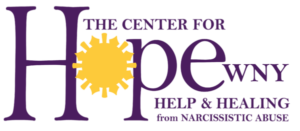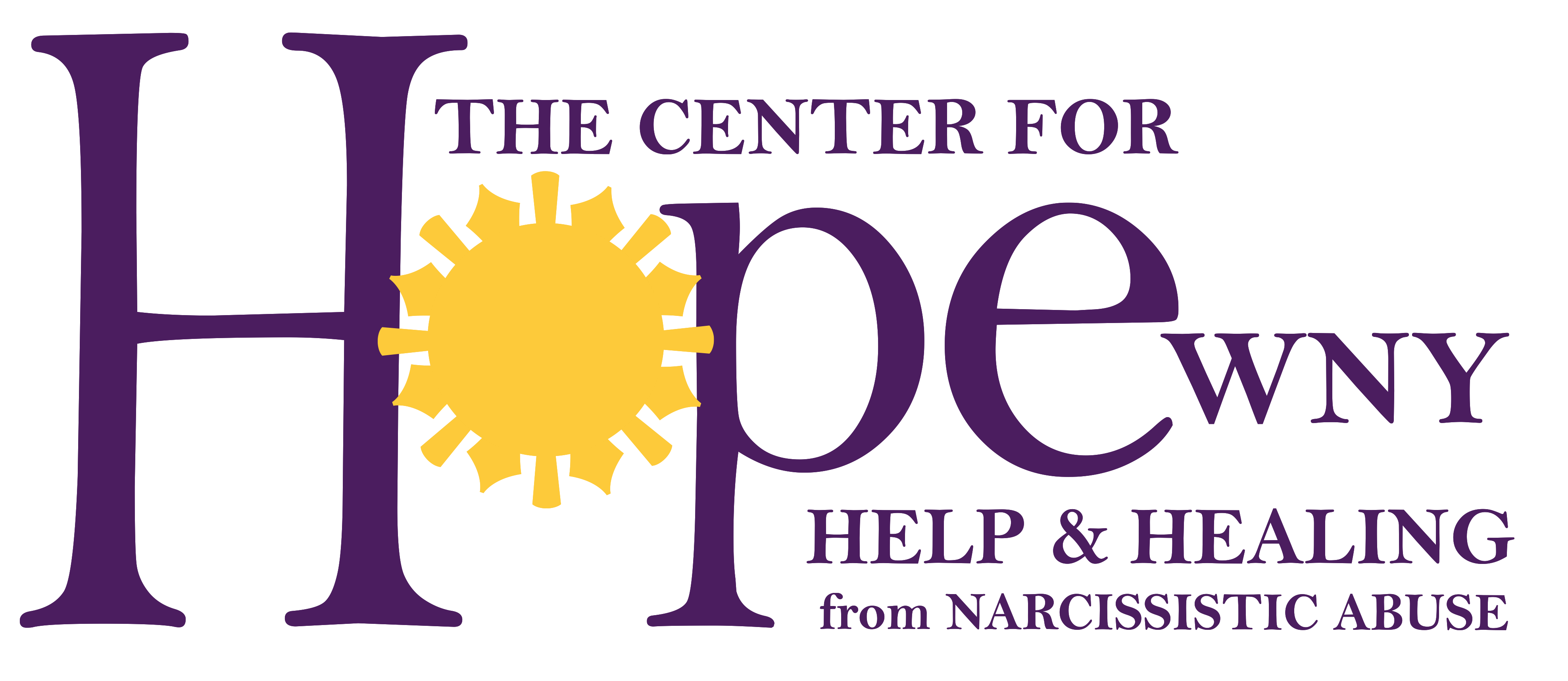- Hope, Help & Healing from Narcissistic Abuse
- 716.955.9658
- info@centerforhopewny.org

Narcissistic abuseNarcissistic Abuse is a form of emotional abuse projected by a narcissist on to another individual, Although narcissistic abuse More is unlike other forms of emotional abuseEmotional Abuse is an attempt to control, in just the same way that physical abuse is More. When we are in a toxic relationship with a narcissist, we might not even realize how bad it is, it’s just that subtle.
Narcissistic abuseNarcissistic Abuse is a form of emotional abuse projected by a narcissist on to another individual, Although narcissistic abuse More isn’t about someone in your life making a mistake that hurt you. This is about a pattern of behavior that’s disrespectful, demeaning, and detrimental to you over time. It feels like alternating water torture, drip, drip, drip, and head-on cruel and unusual punishment. Here comes the wrecking ball again…
5 Signs of Narcissistic Abuse
,1. Walking on Eggshells
I had never heard this term when I was in the worst times with my narcissist. It perfectly describes the constant state of hypervigilance you feel in this type of toxic relationship. You are always holding your breath, waiting for the other shoe to drop. You know the narcissist’s triggers and you will do anything to prevent them from happening. I found myself sitting on the edge of my seat. I even went so far as to ask my husband and daughters not to talk about certain subjects in the narcissist’s presence. I was trying so hard to avoid any of his triggers.
This constant state of hypervigilance is not healthy for you. This perpetual stress is no good for your mental, emotional, or physical health.
2. ,You Ignore Your Needs to Please the Narcissist
This emotional torture forces you to focus on the needs of the narcissist you’re your own basic needs. In the worst times of my relationship with my father, I suffered debilitating insomnia, gastrointestinal problems, skin issues, irritability, intense anxiety, and depression.
These are just a few of the physical and mental issues you may encounter when you’ve suffered narcissistic abuseNarcissistic Abuse is a form of emotional abuse projected by a narcissist on to another individual, Although narcissistic abuse More.
One of the first questions I ask my coaching clients is how they are sleeping. Sleep is critical for your overall health. Stop minimizing yourself.
3. ,Isolation
Narcissists intentionally isolate their victims from friends and family. One of the narcissist’s greatest fears is exposure. They don’t want you to share their cruel behavior with people close to you. So they make sure that you are distanced from those closest to you. When you want to spend time with friends or family they make you feel guilty for leaving them.
You need to find your beacon of light. Someone who will listen to what you’ve been through, be there for you and support you. This is one of the nest steps to healing. Your people will still be there even if your narcissist has tried to remove them from your life. They love you.
4. ,Your Trust is Broken
I bet you’re a bit like me. My trust was like a plate that had broken into a million pieces and then glued back together. It just didn’t look the same. Narcissists are liars and cheaters. They make you feel like you are going crazy. They aren’t dependable or loyal. It’s hard to build back your trust. That’s why it’s so critical to talk to someone who gets it. A narcissistic abuseNarcissistic Abuse is a form of emotional abuse projected by a narcissist on to another individual, Although narcissistic abuse More recovery coach can help you learn to trust again.
5. ,You Deserve It
Please don’t tell yourself that you deserve this relationship with this narcissist. You haven’t done anything to deserve it. Narcissists suffer from narcissistic personality disorderNarcissistic Personality Disorder (NPD) The hallmarks of narcissistic personality disorder (NPD) are grandiosity, a lack of empathy for other people, and More. They are disordered. They do not behave normally.
You are addicted to the pain. Break the trauma bond. Today is your day.
I wrote about this in my book “Wrecking Ball Relationships: How to Identify, Live With or Leave the Narcissist in Your Life.”
“We’re living in a time of destigmatizing mental illness and being radically aware of our emotional pain. So, it’s important to note people who deal with narcissists on a regular basis struggle with constant emotional pain. You may not understand what’s happening or you’re made to feel you’re overly sensitive, inflexible, and unaccepting.
Relationships with narcissists make people feel like they’re:
· Going crazy
· Lost and unsure of things you counted on
· Out of control
· Confused and helpless
· Disrespected and disregarded
· Overwhelmed
· Filled with shame
· Experiencing a devastation they didn’t know was possible
It’s all about control. They won’t answer direct questions. Instead, they’ll deflect and turn the tables and suddenly become the victim. They bully and interrogate to get the information they want. My father would go into something I came to know as his “narcissistic spin” or “narc spin.” This happened every time he perceived something as offensive or didn’t get what he wanted. He’d become very quiet if around others and then stop talking to me immediately after for an undetermined period of time. This almost feels like an extended temper tantrum and acts a predecessor to a narcissistic rage storm. Often their verbal attack is so swift, victims don’t have time to properly respond.”
If you haven’t made any changes, if you’re still in that toxic relationship, questioning yourself, 2024 is your year. Change is uncomfortable. It’s much easier to stay where you are. But change comes from uncomfortable places.
Don’t step into another new year in this toxic situation. Often, we stay in these cycles of abuse because we don’t believe we deserve something better.
You do deserve better. Make 2024 your year.
I have a group starting soon. I have a limited number of seats available for serious people who want to be able to recover from this and never be in this situation again.
Get on the waiting list.
https://www.lynncatalano.com/group-registration
This is your chance. Don’t wait another day.
This is why it’s so important to talk to someone after you’ve suffered this type of abuse. But not just anyone. You need to find someone who’s familiar with narcissistic personality disorderNarcissistic Personality Disorder (NPD) The hallmarks of narcissistic personality disorder (NPD) are grandiosity, a lack of empathy for other people, and More. You see, I didn’t get here by accident. I didn’t set out to become a narcissistic abuse recovery coach. But after I’d suffered this kind of abuse, I realized that my story and my experience could help so many people who’ve suffered similarly. When someone tells me about their struggles and their story, I’m not just understanding. I really get it. I’ve been there. I’ve felt those same emotions, that same rage, and loss.
I can help you.
Don’t suffer in silence from narcissistic abuseNarcissistic Abuse is a form of emotional abuse projected by a narcissist on to another individual, Although narcissistic abuse More, let’s talk.
Click here to book a free session with me. Don’t wait another day.
You can find my book “Wrecking Ball Relationships” on Amazon and BarnesandNoble.com.



